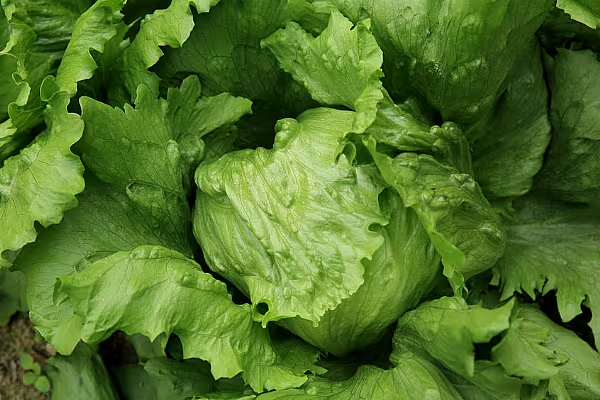A company in the UAE is using indoor vertical farming to plant crops in smaller spaces compared to traditional farming, with the ultimate goal of enhancing food security in the import-dependant Gulf region.
Badia Farms is said to be the first indoor vertical farm in the Gulf, according to its website.
Inside the facility, seeds are planted in trays that are stacked as high as six metres, an arrangement which the farm owner describes as the "best use of space".
Controlling Temperature
"Because you are using these levels, the area where you need to control temperature and humidity, is less than in horizontal farms or outdoor fields," Badia Farms CEO Omar al-Jundi said.
Badia uses hydroponics, a type of farming in which water is used instead of soil.
The farm has trays from the floor all the way up to the ceiling carrying different plant crops such as basil, mint and the different kinds of lettuce.
The goal of the project is to "find an innovative and sustainable solution for the problem of food security... we in the Gulf import almost 80% of our fresh food needs, whether it is vegetables or fruit," Jundi said.
Targeting HoReCa
But the Saudi native said he started off the project in the UAE to first target the hotel industry and gourmet food chains.
Jundi wanted to prove that indoor vertical farming can produce crops of the highest quality, before reaching out to household consumers.
On its website, Badia Farms prides itself on delivering gourmet crops to "top restaurants, caterers, and chefs".
Jundi is looking to expand the project by introducing greenhouses that can house bigger crops as well as expanding across the region, targeting Saudi Arabia first.
The farm's current production capacity is 1,000 heads of lettuce a day, with exports to Saudi Arabia slated to begin by the end of the summer.
A University of Virginia study from 2015 said the chances of shock food price rises in import-dependent states are rising as the world's population grows.
Import-dependent states in the Middle East, including Saudi Arabia and the United Arab Emirates, are particularly vulnerable to shocks in other regions, an environmental sciences professor who co-wrote the study, told Reuters.
News by Reuters, edited by ESM. Click subscribe to sign up to ESM: European Supermarket Magazine.














